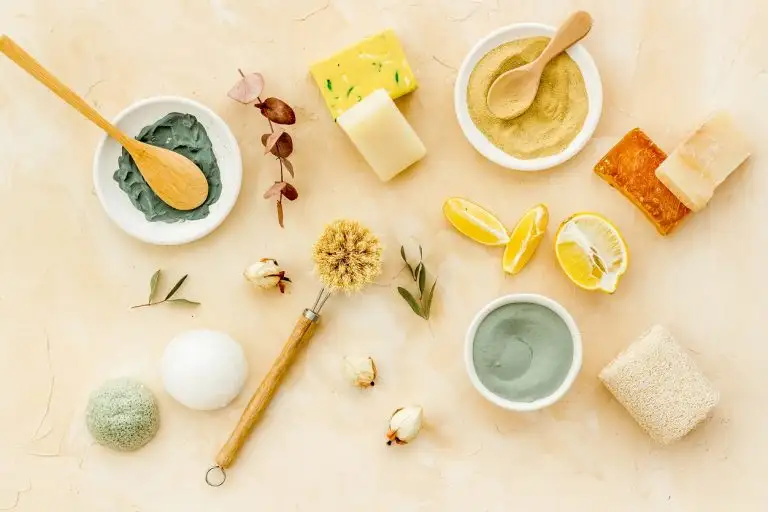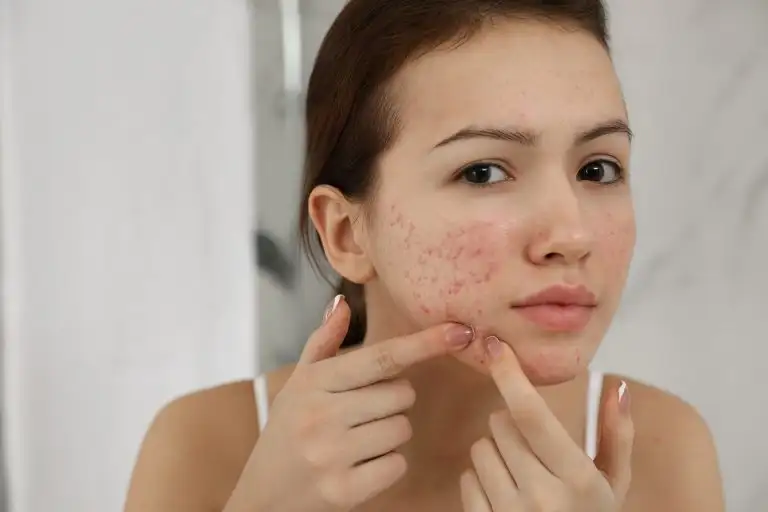With Wockhardt Hospitals’ expert-recommended home treatments, you can have your skin ready for the harsh winter season. Here, you will learn the causes of winter dry skin and the top ten ways to shield your skin in the winter months to maintain optimum skin health and a glowing, rich complexion.
Skin lose its glow and moisture in the winters so it becomes extremely important to maintain your skin especially in this dry season.
Homemade remedies are the best because they are effective and do not have any kind of side effect.
Homemade remedies works wonders on the skin.
Opt the homemade remedies to get radiant and glowing skin.
10 Best Home Remedies for Skin in Winter
1) Banana face pack
If your face is too dry then you can apply banana face pack. All you need to do is to mash the bananas add milk, honey, lime juice to it and apply this on face.
2) Almond Oil
Almond oil is extremely beneficial for the skin as it provides the appropriate moisture and maintain the natural glow. You can massage your face with almond oil and leave it overnight for the best results. Use it on a daily basis to get more radiant and glowing skin.
3) Honey and egg white pack
Honey and egg are some of the best ingredients that people are using since ages. They provide the exact moisture to the skin and the end result is soft and glowing skin.
4) Oatmeal and milk
Make a paste of some oatmeal and milk. Apply it on the face, gently rub and let it dry. Then after few minutes rinse it off. This will remove the dead skin from your face and will make it more glowing and beautiful.
5) Curd
Curd is surprising enough to be in this list. But actually it can make your skin extraordinarily beautiful and glowing.
6) Cucumber
Cucumber is the best remedy to treat any type of skin problem. It is rich in water content, you can either eat it directly or apply it on the face.
7) Coconut Oil:
All hail the great savior that is coconut oil, for there’s nothing it can’t do – except maybe be used on oily skin types! But for dry and dull skin, coconut oil acts as an excellent moisturizer.
8) Aloe Vera
Aloe vera gel acts as a great moisturizer because of its non-greasy texture and can double as an aftershave too. It also keeps away acne and wrinkles on the skin, helping to keep your skin firm.
9) Milk
Raw milk actually works as a great toner for the skin. Loaded with antioxidants and lactic acid, it helps to even out your complexion and remove dark spots on your face. You can also combine raw milk with ingredients like papaya, honey, almond, turmeric or so on to help your skin glow.
10) Drinking Lots and Lots of Water
Hydrating your skin from within flushes out toxins from your body, clearing out acne by balancing the oils on your face, and also helping to reduce wrinkles. It is recommended that women drink at least 1.6 litres of water a day and men drink about 2 litres.
Causes of Winter Dry Skin
Winter dry skin is a common concern due to various environmental factors. Understanding the causes can help in formulating effective preventive measures:
- Low Temperature Levels: Lower temperatures have a direct impact on the skin. When it comes into touch with our skin, the cold air absorbs its moisture. During the winter, humidity is also low; thus, moisture does not stay on the skin for as long.
- Indoor Heating Systems: Central heating systems contribute to indoor dryness, robbing the skin of its essential moisture.
- Hot Showers: Hot showers for longer periods strip the skin of natural oils, further exacerbating dryness.
- Harsh Cleansers: Using harsh soaps or cleansers can disrupt the skin’s lipid barrier, leading to dryness.
- Ageing Factors: Ageing skin tends to produce less oil, making it more susceptible to dryness during winter.
- Hot Beverages: Excessive consumption of dehydrating beverages like coffee and tea can contribute to skin dryness.
- Skin Problem: Some people already have skin conditions such as eczema or psoriasis, which cause the skin to become extremely dry and even more so during the winter.
Symptoms of Winter Dry Skin
Damage done to the skin barrier during the winter can cause dryness, which can result in:
- Dry skin often presents with visible flakiness and peeling.
- Dry skin may become inflamed, leading to redness and irritation.
- Particularly in regions where friction is high, the skin may get chapped and cracked.
- Persistent itching is a common symptom, reflecting dryness and dehydration.
- The effects of dehydration make wrinkles and fine lines come out more.
- Increased sensitivity to skincare products may occur due to compromised skin barrier.
- In severe cases, winter dry skin can lead to painful, deep cracks, requiring immediate attention.
- Individuals with pre-existing skin conditions may experience exacerbation during the winter months.
Medical Treatment for Winter Dry Skin
With the correct products and a few tweaks to your skincare routine, you might be able to maintain radiant, smooth skin throughout the winter.
Here are key interventions recommended by healthcare professionals:
Lifestyle & Home Remedies
- Moisturisers: Every time you wash your skin, especially in the winter, you should use a moisturiser. Dermatologists may prescribe specialised moisturisers to combat severe dryness.
- Maintain your fluid intake: Increasing water intake hydrates the skin, maintaining its smoothness. Taking supplements containing Omega-3/6 fatty acids or eating meals rich in these fatty acids may also be advantageous.
- Humidifiers: Using humidifiers at home helps maintain indoor moisture levels, benefiting the skin.
- Limit bath duration and use warm water: The natural oils present in your skin are removed by hot water and long showers or baths. Bathing should only be done once a day for five to ten minutes at a time. Use warm water—not hot.
- Relieve itchiness: If the area is itchy due to dry skin, dab it with a fresh, cold towel. Another option is to use an anti-itch lotion or ointment that has at least 1% hydrocortisone in it.
If these methods do not relieve your symptoms or if they worsen, speak with an experienced skin doctor (Dermatologist) about developing a personalised skincare plan based on your skin type and skin-related conditions you may have. If you have a significant skin illness, your doctor may recommend a cream or ointment. Corticosteroid creams can be prescribed for short-term use to alleviate inflammation. Seeking medical advice from top dermatologists at Wockhardt Hospitals helps identify and address any underlying health issues contributing to persistent winter dryness.
FAQs on Winter Care for Skin
Q. How can I get a winter glow naturally?
Stay hydrated by drinking plenty of water and incorporating moisturising foods into your diet for a natural winter glow. Adopt a regular skincare routine with gentle cleansers, hydrating masks, and natural oils to nourish and protect your skin against the harsh winter elements.


















